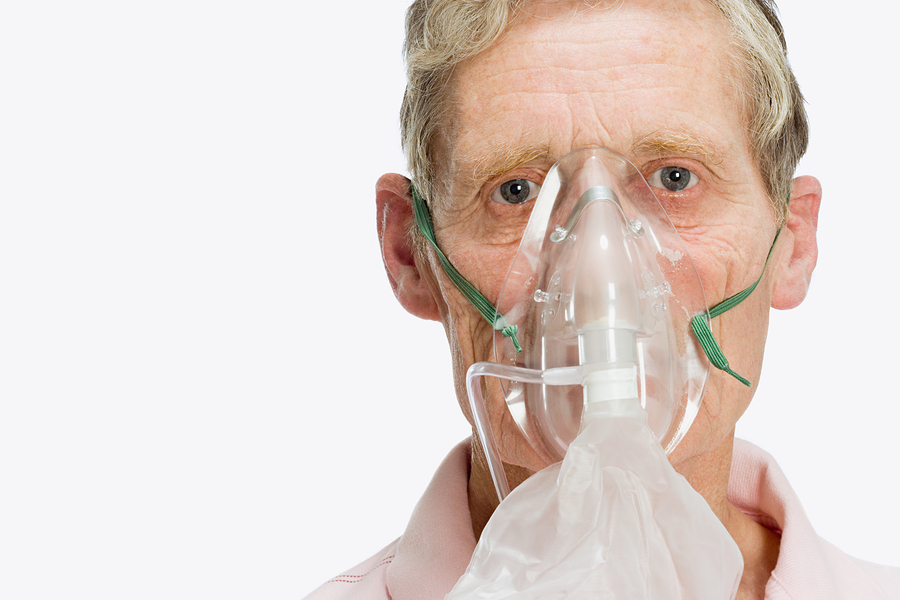Anxiety is a common psychological condition affecting many people, as many as 40 million adults in the United States alone. The condition is a mental and psychological state of fear and apprehension over what is likely to transpire in the future given a situation.
When a person is diagnosed with mesothelioma, there is often fear, disbelief, anger, and apprehension. This is because mesothelioma is a rare type of cancer affecting only a handful of people and is hard to detect in early stages. Many patients often mistake the symptoms for other health conditions such as pneumonia or just shortness of breath while the underlying issue is quite dire. The diagnosis of the disease is the last thing that anyone can expect, therefore. Further, the main causal factor, asbestos exposure, has been banned in the world for years, this means that many people cannot relate how they acquired the disease and what went wrong.
After the reality of your diagnosis sets in, anxiety can become a problem. The disease can be a major source of anxiety and affect even the most emotionally stable people. Despite everything, it is vital to be positive and to seek help that will help with a change of focus that helps in the battle against the disease.
What can I expect emotionally when living with Mesothelioma?
Life changes when you become a mesothelioma patient. The functioning of the body will change, and you will be engaged in another activity of seeking constant and quality medical care that may be time-consuming and intense.
The first expectation is the loss of self-identity. The normal human relationships will take a twist from cordial to utmost respectful and messages of solidarity. The treatment can raise a personal awareness that something is dangerously wrong.
The next emotional expectation is self-pity. One may start wondering why it happened, what went wrong, and what should have been done differently. A feeling of sadness is likely to hit every time the questions pop up.
Another emotional expectation is fear of the feature. The mesothelioma treatments can lead to body changes such as loss of hair, loss of weight, fatigue, tiredness, and a general change of lifestyle. You may wonder how long this will go on and what amount of time is left to accomplish other goals of life.
 What are common symptoms of anxiety with Mesothelioma?
What are common symptoms of anxiety with Mesothelioma?
Dealing with this rare and aggressive type of cancer often leads to clinical anxiety. Although you may still have some doubts about the accuracy of the biopsy result, the treatments are the factors that make many patients realize that the situation is life-threatening. Below are some of the anxiety symptoms you may experience:
Changes in social behavior. A patient can exhibit symptoms such as; apathetic and sad feelings, crying in isolation, uncontrolled temperament, social isolation, and a loss of the desire for physical activities. Additionally, there might be a general change in tastes and preferences of hobbies and likes about foods, clothing, cars, entertainment, adventure and so on.
The other symptom of anxiety is physiological changes. The signs presented may range from changes in eating habits, fatigue, and changes in sleeping patterns. For instance, a patient can start sleeping during the day and waking up at night to sit on the patio’s rocking chair listening to classical music.
Lastly, a patient may exhibit cognitive symptoms such as worthlessness, indecisiveness, indifference, trouble concentrating and poor memory.
Research at the John Hopkins University Hospital has shown that 25% of cancer patients have these symptoms. Among them, patients with rare cancers, such as mesothelioma, are twice as likely to suffer from anxiety. It is important to point out that feelings of sadness and remorsefulness are normal. The main reason why medical experts and physicians regard them as major concerns is their persistent nature and prolonged periods of affliction.
What methods are useful for managing anxiety?
The anxiety symptoms can be managed just like the other non-cancer related anxiety, but with a different approach. Professional care entails several procedures of anxiety control.
Therapy: Therapy is the most basic management approach to anxiety. It involves exposing the patient to communication that would make him/her accept mesothelioma with less apprehension. Therapy may mean finding closure in group discussions or interpersonal conversations on social media platforms.
Antidepressant medication: Antidepressants are used along with psychotherapy to help patients approach their deepest fears. Some of the medicines that can be prescribed by a physician are serotonin inhibitors, ketamine, and tricyclic antidepressants to name but a few.
Transcranial magnetic stimulation: This option is performed when a patient fails to respond to therapy and medication. It involves activating brain activity by magnetic waves. It is safe, painless, noninvasive, and easy, has high rates of success, and can be done without sedation.
Complementary and alternative treatment: This is a holistic approach to fighting anxiety from an in-home perspective. It involves a change of lifestyle through dieting, exercising, and a general change of mindset. It is an alternative or complementary approach to the other three methods of anxiety management. For instance, a mesothelioma patient can adapt to the keto diet, start yoga exercises, become religious, and go to spas, massage sessions, and acupuncture. These methods treat the body, mind, and soul; completely transforming a person and putting anxiety at bay as there is no time for fear.
 Should I join a Mesothelioma support group?
Should I join a Mesothelioma support group?
Yes. A mesothelioma support group is critical for emotional and financial support. As a rare disease, mesothelioma patients tend to perceive that they are suffering alone. However, learning from other survivors’ experiences can be a wakeup call that ushers in a new breath of life in regard to the fight against cancer. Some of the benefits of joining a mesothelioma support group are;
- It is a warm forum for sharing experiences.
- Support groups can complement therapy sessions as it is easier to get counselors and motivational speakers to help patients through the treatment journey. The sessions reduce anxiety, self-pity, and even moods.
- Mesothelioma support groups can share resources with patients. This can be a kind gesture given that insurance does not cover some of the related costs.
A mesothelioma support group is critical in giving patients the confidence to move on with their lives, share their experiences and get motivation. This complements the efforts of family, therapists, friends, and doctors in general.

